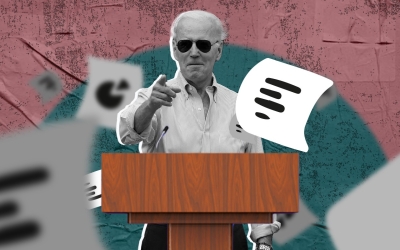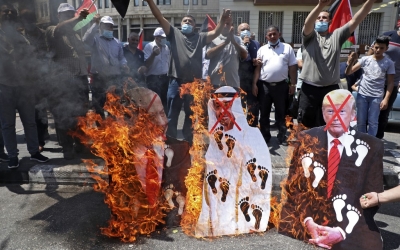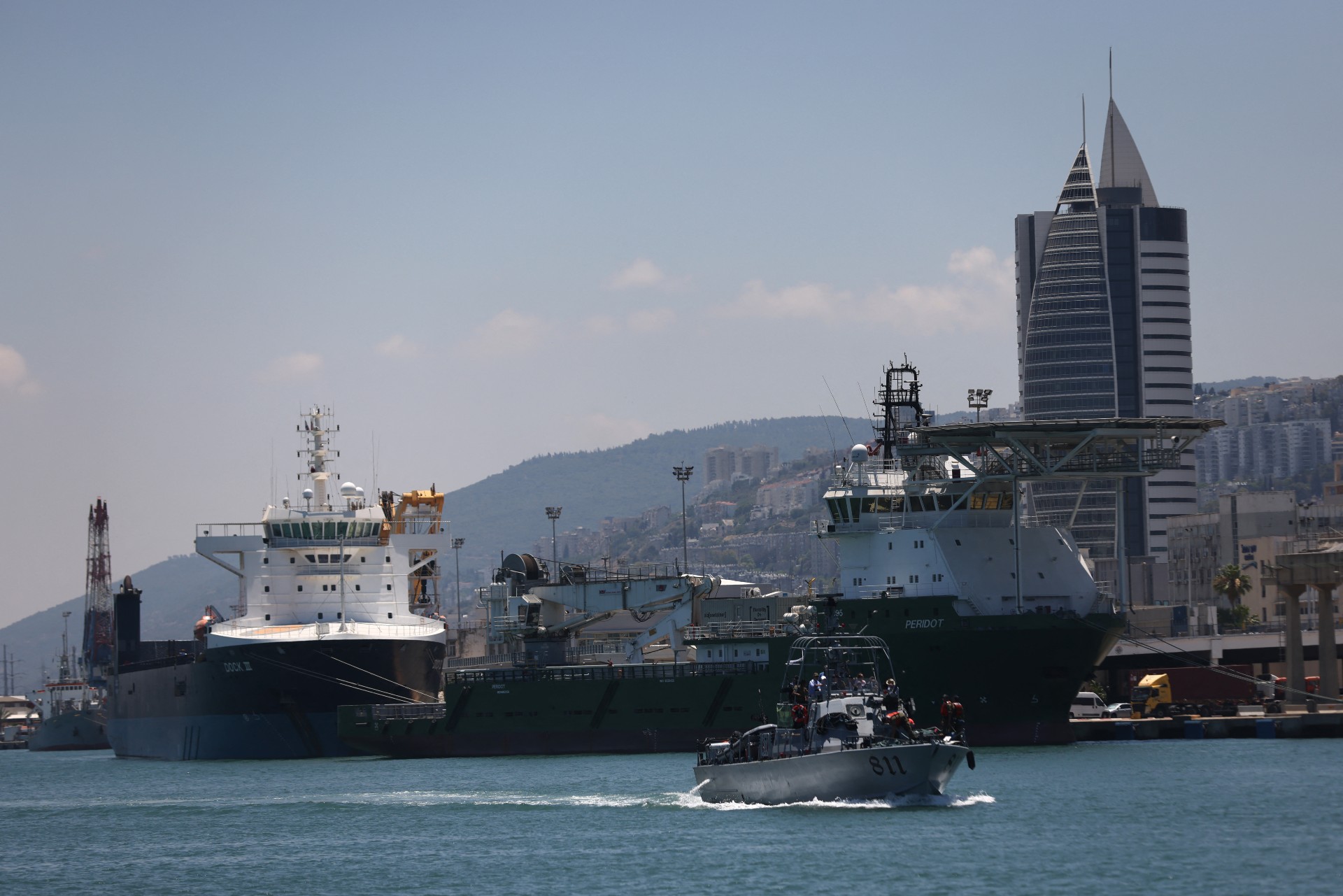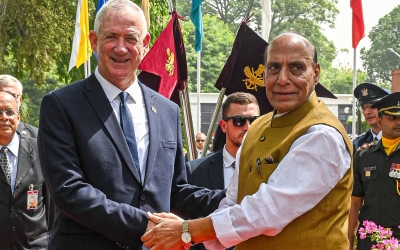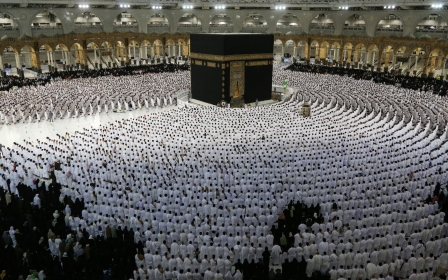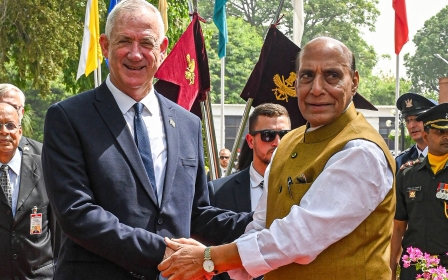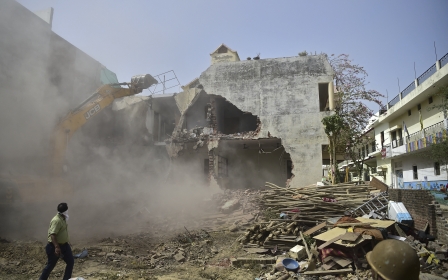Why the new 'West Asia quad' spells more trouble for the Middle East
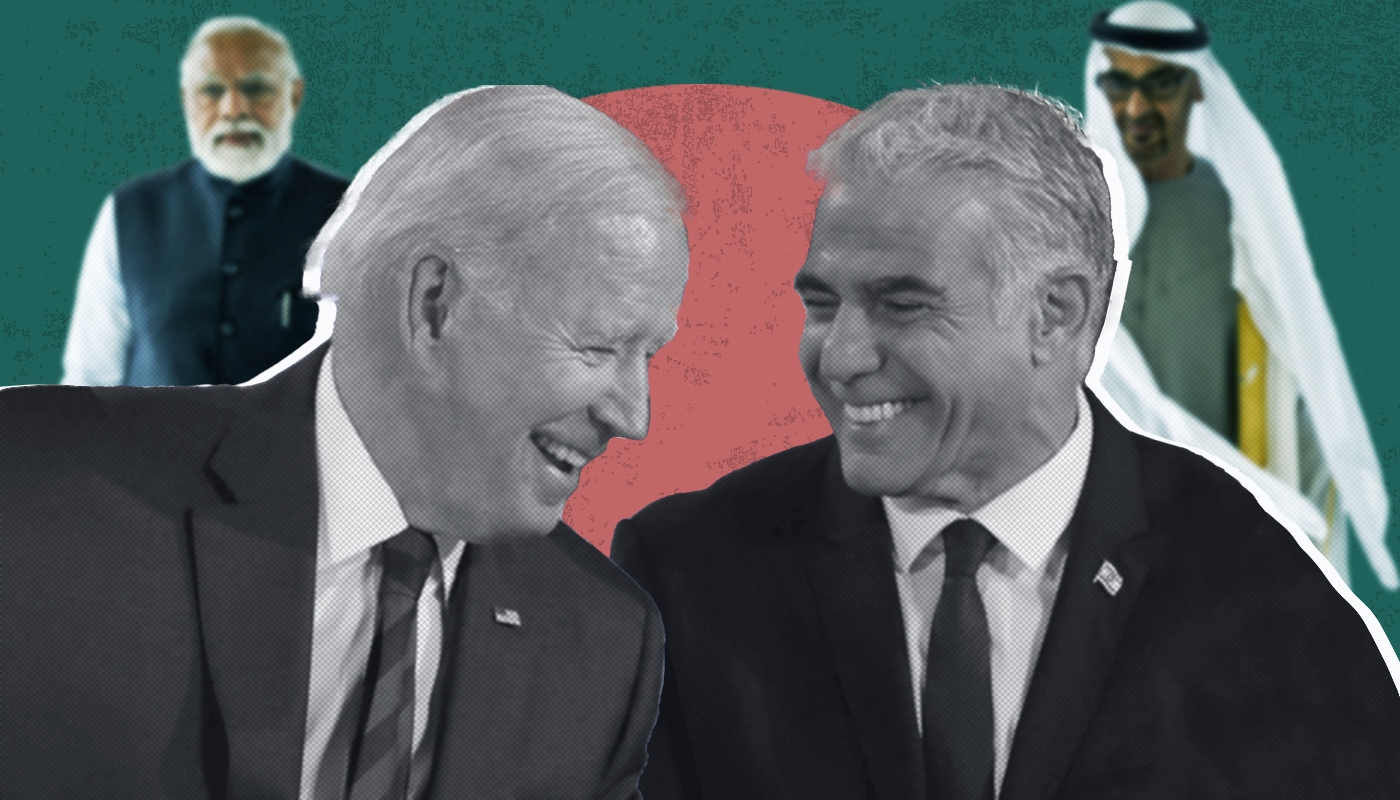
In October 2021, the foreign ministers of India, Israel, the United Arab Emirates and the United States agreed to form a new informal bloc to expand trade and political cooperation in the Middle East and Asia.
The virtual summit prompted excited whispers in Israel and in India of the making of a new power group, a new "West Asia Quad", an "Indo-Abrahamic" bloc, following in the footsteps of Quadrilateral Security Dialogue or the Quad, made up of Australia, India, Japan and the United States built up to counter China in the Pacific.
With official information hard to come by, most details in the public arena were drip-fed from the Israeli or Indian establishment to the media. Until now.
On Thursday, US President Joe Biden, currently visiting the Middle East, sat alongside interim Israeli Prime Minister Yair Lapid and participated in a virtual summit with Indian PM Narendra Modi and the UAE's leader Mohammed bin Zayed in which the "I2U2" (India, Israel, the United States and UAE) was launched with some officialdom.
In a joint statement released on Thursday, the group said it aimed "to harness the vibrancy of our societies and entrepreneurial spirit to tackle some of the greatest challenges confronting our world, with a particular focus on joint investments and new initiatives in water, energy, transportation, space, health, and food security".
The bloc added that they intended to mobilise private sector capital and expertise, improve public health as well as increase people-to-people connectivity between countries in the Middle East. "[We intend to] create new solutions for waste treatment, explore joint financing opportunities, connect our startups to I2U2 investments, and promote the development of critical emerging and green technologies, all while ensuring near- and long-term food and energy security."
The expressed intent to "modernise infrastructure" and "advance low carbon development" and “improve public health” belies its real motivation: rampant privatisation, securitisation and establishing dominance in the region.
Consolidating the Abraham Accords
The centrepiece of the quad's agenda remains the Abraham Accords or the normalisation deals between Israel and several Arab and North African states.
Biden's administration has been unequivocal in its endorsement of the Donald Trump-era deals and has looked to build on them.
In the joint statement, the quartet made it clear that the Abraham Accords were here to stay: “We welcome the economic opportunities that flow from these historic developments, including for the advancement of economic cooperation in the Middle East and South Asia, and in particular for the promotion of sustainable investment amongst the I2U2 partners,” the statement read.
The allusion to economic cooperation comes as economic ties between India, the UAE and Israel continue to accelerate. Indians make up the largest expat community in the Emirates (almost 28 percent of the population) and India is the UAE's second-largest trade partner.
In February, India and the UAE established a free trade agreement. It is expected that India and Israel will reach a similar agreement in the near future. In a statement released days before this week's summit, the Indian government said the quartet would encourage joint investments in six mutually identified areas such as water, energy, transportation, space, health, and food security.
But the emphasis on collaboration under the guise of "mutual interests" has precipitated the establishing of an economic and political ecosystem in which Israel, the UAE and India become co-dependent allies under US leadership.
According to Gokul Sahni and Mohammed Soliman, the rise of the Indo-Abrahamic bloc is gradually solidifying the creation of a West Asian system "establishing a balance of power against the region’s dynamic independent powers, Iran and Turkey, and stabilising the region in an era of great power competition."
Likewise, Kevjn Lim told the New York Times that with the onset of the new quad, Biden seems to be "trying to integrate two separate strategic contexts [the Indo-Pacific and and the Middle East]. "It’s looking to close ranks among the US’s partners in different regions."
A gatekeeper
In other words, on paper, India has joined the UAE (as well as Saudi Arabia), the United States and Israel as economic partners. In practice, the bloc has ambitions to become the gatekeepers of the region from West Asia to South Asia.
With the normalisation deals between Israel, UAE and possibly Saudi Arabia, the Palestinians have been rendered irrelevant and inconsequential to all parties within the quad
For instance, with the normalisation deals between the UAE and Israel and the increased likelihood of Saudi Arabia also normalising ties with Israel, the Palestinians have been rendered irrelevant and inconsequential to all parties within the quad. Each country will not only support each other where possible, but invest in each other's national projects.
Therefore, Emirati-Indian companies will also become more involved in Israel, including within the occupied territories and settlements. Likewise, the UAE will help whitewash India's crimes, too. Earlier this year, the UAE was the first country to send a delegation to Indian-occupied Kashmir to consider investing in the region since Modi's government abrogated the state's semi-autonomous status in August 2019.
Within hours of Biden's meeting on Thursday, Reuters reported that Haifa Port had been sold to the Indian company Adani Ports, operating on a joint-bid with Israeli company Gadot. The deal puts the duo in charge of the port until 2054. India has already started co-producing Israeli weapons in Indian factories across India.
These jointly produced arms will extend the reach of Israeli arms technology given the wider expanse of Indian diplomacy. The I2U2 then, is the formal outsourcing of the American empire to Israel, India and the UAE (as well as Saudi Arabia).
And different pieces of the puzzle are already falling in place.
American hypocrisy
On Thursday evening, American lawmakers voted for an amendment to the National Defence Authorization Act (NDAA) that would protect India from being slapped with sanctions over its continued defence trade partnership with Russia.
The amendment, introduced by Indian-American lawmaker Ro Khanna, proposed the deepening of defence ties between India and the United States and called for an India-specific waiver under the Countering America’s Adversaries Through Sanctions Act (CAATSA).
“As China escalates its aggression along the Indian-Chinese border, the oldest democracy in the world must stand with the largest democracy world to send an unequivocal signal that sovereignty and international law must be respected,” Representative Khanna said a statement ahead of the vote.
“I urge Congress to take up my provision to strengthen the US-India defence partnership, and I urge the Administration to issue a CAASTA waiver for India to prevent any weakening of that important partnership. Failing to do so will only push India closer towards Russia given their security needs.”
Khanna also recommended that the US "take additional steps to encourage India to accelerate India’s transition off Russian-built weapons and defence systems while strongly supporting India’s immediate defence needs."
Political economy of occupation
Khanna said nothing about Modi's rising authoritarianism and anti-Muslim policies that has left Indian democracy in tatters.
India's annexation of Kashmir in August 2019, the passing of the Citizenship (Amendment) Act (CAA), the periodic anti-Muslim pogroms, increasing crackdowns on freedoms in the country, even prompted Khanna's own colleague Ilhan Omar to introduce a resolution calling for India to be categorised a "Country of Particular Concern".
With the formation of the I2U2, India will become unequivocally part of the political economy of the Israeli occupation
Omar's resolution isn't likely to pass because it has received very little support from her colleagues.
However, the fact that one progressive US lawmaker can call India a "Country of Particular Concern" while another purportedly progressive colleague of the same party can urge closer military ties to the "world's largest democracy", points to the fissures of American self-interest masquerading as concern for human rights and respect for international law.
Khanna has been one of most vocal critics of the Saudi-led war in Yemen and the US role in the conflict. But in the name of American interests, his amendment, if passed by the Senate, would encourage India, a key ally to both Saudi Arabia, the UAE and Israel, to become a larger patron of the US arms industry.
Khanna’s office did not reply to several requests from MEE for comment.
As it stands, India is already the largest purchaser of Israeli arms, spending around $1bn per year. With the formation of the I2U2, India will become unequivocally part of the political economy of the Israeli occupation.
The I2U2 is likely to serve as a means to reinforce the autocratic leadership in the UAE and Saudi Arabia and provide a pass for the ethnocratic governments of India and Israel.
The views expressed in this article belong to the author and do not necessarily reflect the editorial policy of Middle East Eye.
Middle East Eye delivers independent and unrivalled coverage and analysis of the Middle East, North Africa and beyond. To learn more about republishing this content and the associated fees, please fill out this form. More about MEE can be found here.



